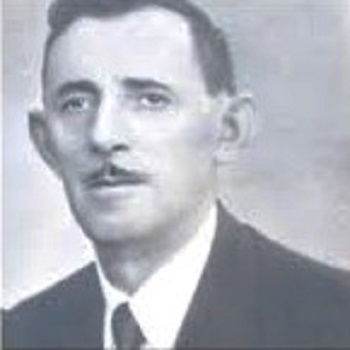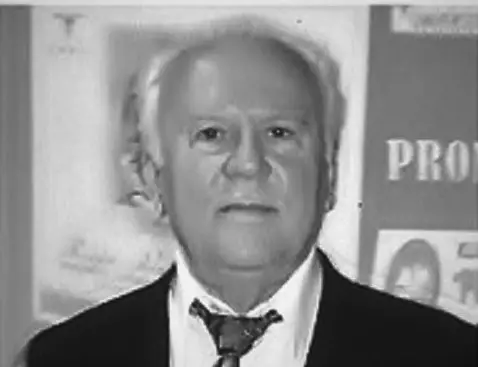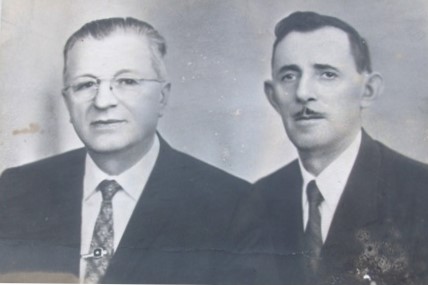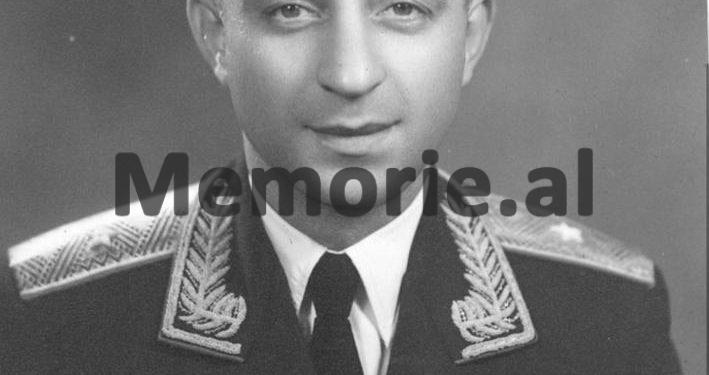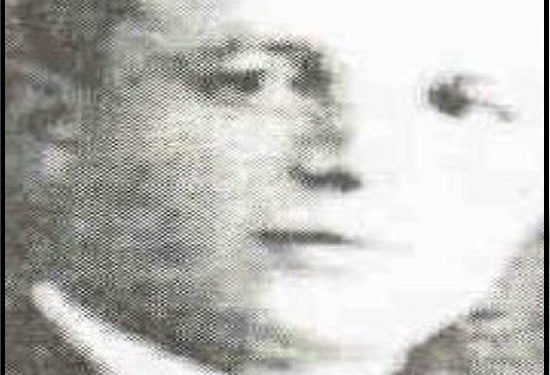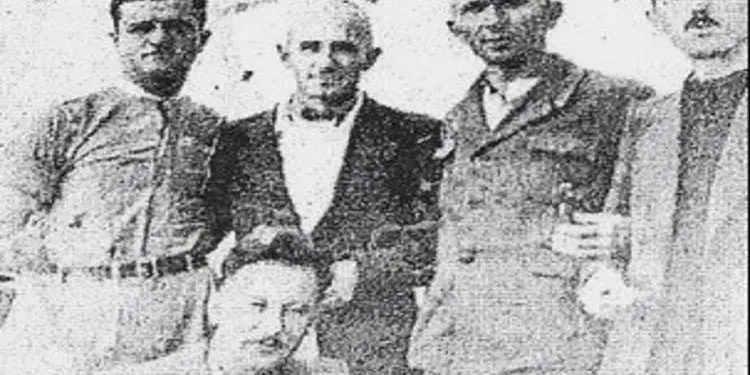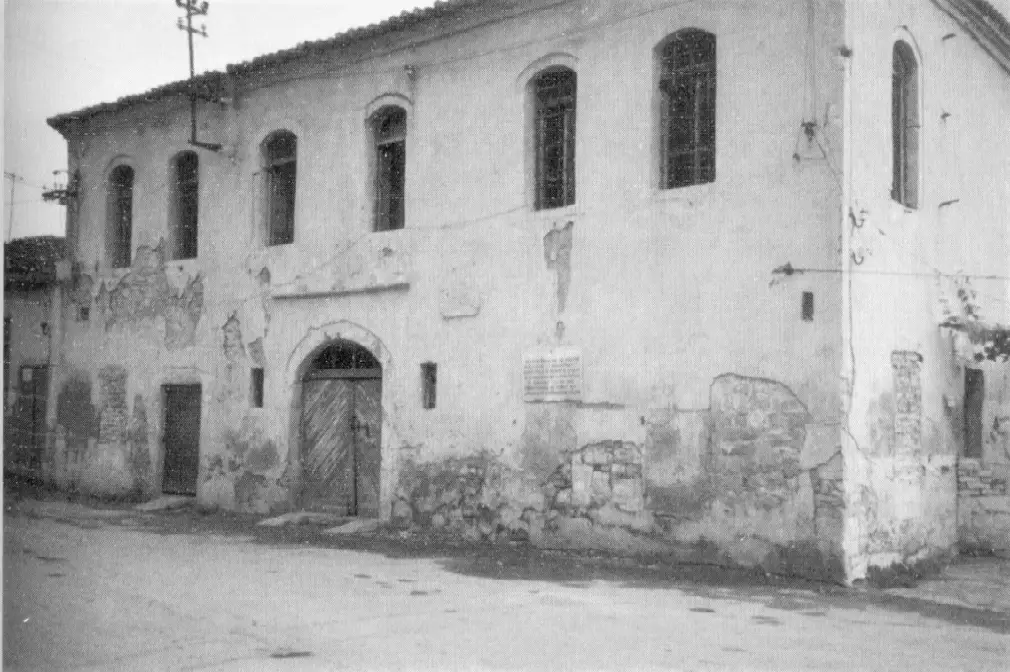By Enver Lepenica
Part One
Memorie.al/ In 1948, Veledin Bilbili left the State Security with their finger in their mouth when they went to arrest him at his home in Dukat. He escaped through a secret door of the house and fled. In April 1949, he landed from a submarine in Karaburun and took 9 anti-communist comrades with him, including the father of the infamous general, Halim Xhelo, who had gone to Dukat to arrest his own father. This escape enraged the State Security, and in response, it carried out inhumane reprisals against the families and bases of the fugitives…!
“National Renaissance” Anti-Communist Organization
Farsighted nationalists like Bego Gjonzeneli, Tahir Hoxha, Maliq Koshena, etc., foresaw a tragic end to the communist dictatorship. They never stopped their fight and work against the communist dictatorship, which is why the “National Renaissance” nationalist movement can be said to have started in 1945, although it took organizational form in late 1947.
It was formed in Vlora prison by Bego Gjonzeneli, Maliq Koshena, Hamdi Gjoni, Meçan Hoxha, Telha Shehu, Murat Demiri, Dilaver Rrapo, Riza Çize, Dushan Koçiu, etc. The goal of this organization was to connect with the Anglo-Americans and overthrow the communist dictatorial system. Bego Gjonzeneli was chosen as the head of the organization. They also recruited three police officers: Loro Simoni, Orhan Bogdani, and Hajdar Dushku, through whom they maintained contact outside the prison.
In 1949, Riza Çize, Telha Shehu, Murat Demiri, etc., were amnestied and released. These and others extended the organization’s activity to many villages in Vlora, as well as in Kurvelesh, Mallakastër, and Gjirokastër. The State Security quickly tracked down the organization with the help of the collaborator “Gishtëza” (The Finger) and dominated the organization, mercilessly eliminating its political opponents with fire and iron.
On November 25, 1949, 81 members of the organization were arrested. In the first group, 25 people were tried with great fanfare, of who were sentenced: 11 people to death, 4 to 20 years, 5 to 15 years, 4 to 12 years, and 1 to 7 years. Numerous arrests and sentences then continued. (MPB Archive D. 2475)
The Escape of the Dukat Group
One of the most active leaders of this organization outside of prison was Veledin Bilbil Çapaj from Dukat, who managed to escape communist cruelty by fleeing to Greece. Petref Agaj, who was sentenced to death, stated in court: “In May 1948, I met Veledin Bilbili in Vlora. He told me that we had formed an organization and we had to work…” and further down: “When I was in the market, Baftiar Feriku met me and told me that Rushit Grabova wanted to see me. Together with Baftiar, we went to Piro Xhezo’s office, which was in ‘Sheshin e Flamurit’ (Flag Square). There we met: Rushit Grabova, Veledin Bilbili, Fejzo Lulo, Qemal Dalani from Trevëllazëri, Dervish Hodo, Piro Xhezo, and Baftiar Feriku.”
This refers to a meeting of the organization’s leaders outside of prison, where a committee named “Drita” (Light) was formed with Piro Xhezo as secretary, proposed by Veledin Bilbili and Rushit Grabova. The organization’s activity outside of prison began with the release from prison of Veledin Bilbili, Dervish Hodo, Riza Çiza, etc. They had prepared in prison and became leaders and organizers of the anti-communist movement outside. As we saw above, they formed a committee for the operational direction of the work, and also formed secret councils in several villages.
Veledini worked with dedication to create a powerful branch of the organization in Dukat. For this, he held several consecutive meetings, in which the following participated: Xhelo Koçiu, the father of State Security General Halim Xhelo (from Dukat), Laze Thanasi, Gani Hamiti, Ahmet Blyshi, Laze Berdua, Cane Dervishi, Haxhi Hasko, Halim Hodo, Dervish Cane, Jazo Ademi, etc.
At one of these meetings in Dukat, it was decided: from the former Ballists, and the families of those killed and executed, an armed group should be secretly formed, ready for combat actions when required. Veledin Bilbili was to make contact with the saboteurs and go to Greece to report on the situation of violence in Albania.
Regarding this meeting, Gani Hamiti stated: “We must make a ‘bang’ so that Europe finds out that we don’t tolerate slavery and helps us overthrow the power of the witches.” At another meeting, where Veledin Bilbili participated as a leader, Dervish Hodua, Piro Xhezua, etc., tasks was assigned to each person, and they were asked to report on their implementation. The State Security, with the help of communists, weak and cowardly people who had become spies and collaborators, followed the organization.
They worked to get as many “enemies” as possible to fall into their net and hoped to catch them red-handed, when they would meet with the allies, as was thought. However, this moment was being delayed, so the Security decided that in addition to other spies, they would also recruit Laze Thanasi, a loyal friend of Veledin Bilbili. In the Security offices, Laze Thanasi agreed to cooperate with the State Security and signed the statement.
As soon as he returned to Dukat, Lazia told his friends what had happened, telling them that their days were numbered and that the group was in danger, so he proposed that they escape, as the only way to salvation. Veledin Bilbili proposed to Cane Dervishi, Shaqir Bejo, and Ahmet Blyshi that they play a game to save themselves: to go to Vlora to the head of the Department of Internal Affairs and propose cooperation, for whatever he needed.
They did so. But the old “foxes” trained by Serbian “wolves” sniffed out the game and refused the cooperation. Two days later, the Security sent Xhelo Koçiu’s son, Halim Xhelo, the infamous Security general who years later ended up hanged in the cells of Burrel by his communist comrades.
“General Halim” or “Halim Stalin,” as he called himself was searching the village for his father, Xhezo Koçiu, an active member of the group. He arrived at Dervish Cane’s house and asked for his father. Dervish’s wife told him they had gone to the old village. Halimi hurried there but found nothing, so he returned to Dervish’s house, but found the house empty there as well. What had actually happened?
When Halim Xhelo knocked on Dervish Cane’s house, nine men were inside: Xhelo Koçiu, Halim’s father; Cane Dervishi, Dervish’s son; Gani Hamiti, Laze Berdo, Shaqir Bejo, Halim Hodo, Laze Thanasi, and Ahmet Blyshi. However, the lady of the house had lied, telling him his father had gone to the old village.
While the general was traveling towards the old village to arrest his father, the nine brave men secretly left the house and traveled in the opposite direction. Thus, these village men left the general, the old “wolf” of the Security, with his finger in his mouth! On April 27, 1949, this group made contact with their trusted friend and leader of the Dukat anti-communist resistance, Veledin Bilbili, who had come from Greece to Dukat (by submarine) with the task of saving his ideal comrades.
In the history of the State Security, this act is recorded with these words: “The group of Hodo Metos from Tragjas, Ilia Konomi from Palasa, Jorgji Martiko from Dhërmi, and two Greek officers, on April 27, 1949, took with them 10 Dukat people, including Xhelo Koçiu, and five people from Dhërmi.”
State Security Terror on Families and Hosts of Fugitives
The escape of the Dukat group showed the will and bravery of the people of Dukat to not submit to the cruelty and violence of Halim Xhelo and Kadri Hazbiu, or Hysni Kapo and Mehmet Sehu. This escape shook the brutal arm of the State Security and made it even more cruel and heartless. With the violence, terror, and treachery they carried out in Dukat, they turned brother against brother, violating every customary and legal code of the Albanians.
Along with the group of 9 men, Jazo Adem Jazaj, who was 63 years old at the time, also set off. He could not keep up with his comrades because he fell ill. His comrades advised him to take shelter with their loyal fellow villager, Sinan Ali Hamiti. After Sinan, Jazo Ademi was sheltered by Dervish Iliazi and finally by Shyqyri Bodua, where he was captured on August 31, 1949, after four months on the run in the forests of Dukat.
After Jazo Ademi’s arrest, 14 other men were also arrested. For them, the Court of First Instance, chaired by Major Vangjel Kocani, handed down inhuman sentences: Jazo Ademi, Sinan Ali Hamiti, Beqir Qamil Jazo, Haxhi Hasko, and Mete Ali Myftari were sentenced to death by firing squad. Hysni Aliaj, Sinan Jazo, Dervish Jazo, Haxhi Qepi, and Shyqyri Bodo received 20 years in prison.
Siri Jazaj was sentenced to 15 years, Zini Hamiti to 8 years, Dervish Ahmet Hibraj and Alem Blushi to 7 years, while Hasim Hamzo received 2 years of forced labor. (Decision no. 116, dated 23.12.1949). But the “warm hand” of the party, as is known, “thought” of the people, and the death sentences were commuted to imprisonment. The unfortunate people of Dukat languished in prisons and forced labor camps for 25 years.
For all the convicted, the seizure of their property and the loss of electoral rights were ordered. All ten families of the fugitives were interned. What had these men done to be sentenced to death and have their families interned? The 15 convicted men were villagers, farmers, and herders, without education or at most with elementary schooling.
Their whole lives had been spent with livestock or in the fields, but they had national feelings, and the intuition of popular wisdom had led them to the conclusion that communism was an inhuman system, and therefore they had to fight and not submit. Jazo Ademi stated during the investigation, under inhuman torture: “I am illiterate, a shepherd and farmer by profession…! The government has taken more than a thousand heads of livestock from me: sheep, goats, cows, and oxen. I talked with Xhelo Koçia, now a fugitive, and we said, ‘What are we going to do because we were afraid they would arrest us as kulaks and kill us?’ because Xhelo told me they had killed the kulaks in Russia…! They didn’t give us tractors for the land because we were kulaks. So we went with the sheep during the day and went out at night…! So I set out to escape, but on the way, I got sick and fell as if I were dead. Gani Hamiti and Xhelo Koçiu put their hands on my forehead and told me: ‘When you get up, go to Sinan Ali Hamiti, because we will come to get you there.'” (MPB Archive, F.1, D. 1474). This was the full extent of Jazo Ademi’s guilt, while the guilt of Sinan Hamiti and Shyqyri Bodo, who were sentenced to death, was that they had sheltered Adem Jazo, who, as the communist investigators said, was an enemy of the people.
The Arduous Life of Veledin Bilbil Çapaj (1903-1981)
Veledini preserved customs, traditions, and was a generous man. He hated the communists and said: “These lowlifes want to make the people eat from a mess tin like soldiers.” He knew Italian and sensed evil, and avoided it. He turned money into capital. He connected with the Anti-Fascist Movement and on August 5, 1943, participated in the battle in Llogora.
After this battle, the Italians carried out reprisals and searches in the village, where they arrested: Veledin Bilbili, Xhafer Asllan Çapaj, Sadudin Ahmet Alushi, and Musa Goxho. Musa Goxho gave the Italians 3-4 jars of honey and was saved. The other three were taken to be executed. Veledini knew Italian and understood that they would be shot, so he told his comrades to run away. While Veledini started running, his comrades hesitated for a moment and then they also started running. Xhafer Çapaj and Sadudin Alushi were killed by the fascists’ bullets (years later they were declared “Martyrs of the Homeland”), while Veledini escaped.
In the spring of 1943, the Anglo-American mission landed on the Karaburun peninsula, which was greeted by Skënder Muço, Hodo Meto, Veledin Bilbili, Sulejmën Meço, Maliq Koshena, Gani Hamiti, Halim Hodo, Cane Dervishi, Axhem Imeri, Xhelil Imeri, etc.
Veledini owned a large amount of property: arable land, pastures, and forests, as well as 4 houses—2 in Dukat and 2 in the Cape of Gjuhëza Karaburun—750 *dynym* of land, etc. Among the prominent men of Dukat, such as Shaqir Bejua, Xhelo Koçiu, Cane Dervishi, Azem Shehu, Jazo Ademi, Ahmet Blyshi, Shyqyri Mislliu, Xhezo Mislliu, Axhem Imeri, Maliq Koshma, Xhelil Imeri, Çelo Imeri, Ahmet Mëhilli, Selman Hamiti, Hamdi Gjoni, etc., the name Veledin Bilbil Çapaj was also mentioned.
In 1943, the communist Salo Petoshati was speaking to his fellow villagers in Dukat and telling them: “Our party has its roots in the rock…!” At that moment, Veledin Bilbili, accompanied by Shaqir Bejua and Cane Dervishi, passed by. When Veledini heard this, he told the communist Salo: “Your party has its roots in lies and murderous treachery, and if it has them in a rock, one day that rock will turn to dust and the wind will take it away. Remember these words, Salo the communist.”
Under the oppression of the communists, he was arrested three times and escaped arrest twice. A senior State Security officer, Mustafa Hoxha, left his memoirs in the service of the communist dictatorship, where he wrote, among other things, about Veledin Bilbili: “After liberation, Veledini started an open anti-government campaign. He propagated slogans to overthrow the socialist order.”
In Dukat, the story of Murat Goxho is known. He had been a soldier in Turkey, the news came that he had been killed, and people cried. Later, Murat came back to the village alive, and the people of Dukat said: “Murat is resurrected.” Veledini used this phrase “Murat is resurrected,” which meant that the Anglo-Americans were resurrected and were coming! In 1947, sure that his property and goods would be taken; he transported and hid some of his belongings with his loyal friend, Musa Gaxho.
He was also connected with the saboteurs or emissaries of freedom who came from the free world to fight here in their homeland against the red dragon. Thus, among others, he sheltered Izet Vrazhdo, Lahe Nuro, and Ahmet Kuka in a hut in Zabrek of Dukat for 15 consecutive days. These movements of his had been noticed by the Security and the Dukat spies who were eavesdropping day and night, so he was in their crosshairs.
For this anti-communist activity, Veledini was arrested three times, but thanks to his natural intelligence, skill, friendships, and endurance, the communists were never able to prove his guilt. On two other occasions, he bravely and skillfully escaped arrest when the pursuit squads knocked on his door./Memorie.al




